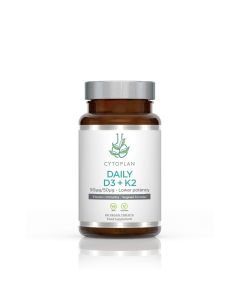Amino acids are compounds used by the body for several essential functions. They are often referred to as the building blocks of protein and are required by the human body for the repair, maintenance, and growth of tissue. Amino acids make up the enzymes that facilitate a range of reactions in our bodies - they transport hormones and neurotransmitters to the sites of need, transport nutrients through our blood and across our cell membranes and produce the antibodies to protect us from illness.
Amino acids can be classified in a variety of ways, the most common being essential and non-essential amino acids, but some can be referred to as conditionally essential. There are 20 amino acids needed by the body, which can be broken into the following categories:
9 essential amino acids cannot be made in the human body and must be supplied by food. Food sources of amino acids include milk, cheese, eggs, meat, poultry, nuts and grains, beans and pulses. While animal sources of protein provide all 9 essential amino acids, as does soy protein, most plant-based sources are missing one or more of the amino acids - and therefore those following a vegan diet need to ensure a variety of plant protein sources to ensure they are obtaining all the essential amino acids through diet.
11 non-essential amino acids are made by the body from the essential amino acids or the normal breakdown of proteins, but despite the classification, they too are essential for health.
Some amino acids can also be categorised as conditionally essential. These amino acids can be made in the body in the same way as non-essential amino acids, but they may become essential in certain circumstances. Examples of conditionally essential amino acids include L-Glycine and L-Arginine, which are considered conditionally essential during pregnancy because the mother needs more of these amino acids to support her own health and the health of their baby. Other examples include L-Glutamine; the requirement for which increases with conditions such as burns, wounds and severe illness, and L-Arginine; which we are less able to synthesise as we age and therefore it can become conditionally essential in the elderly. Those who undertake regular exercise also need to ensure an optimal intake of all 20 amino acids in order to activate muscle protein synthesis and aid in muscle recovery.
At Cytoplan, we provide a range of amino acid supplements to help you support a number of different areas of health. Using the 'L' form of amino acids ensures that they fit suitably into metabolic pathways. Amino acids can be L or D isomers - an isomer referring to compounds with the same molecular formula, but different structures. The 'L' form is required by the body and found in most foods, and as such, Cytoplan amino acid supplements are in their most bioeffective forms.
We also provide a range of natural collagen supplements. Collagen, which is made up of a range of amino acids, in a unique combination, is the most abundant protein in the body and one of the major building blocks of our connective tissue, skin, bone and cartilage. Supplementing with collagen peptides (compounds that contain at least 2 amino acids) can stimulate our body's natural collagen production and support various areas of health.
How many amino acids are there?
There are over 300 amino acids in existence, and 20 of them are used by the human body. Of these, 11 are considered "non-essential" as they can be synthesised by the body, but 9 are "essential", which means that we need to get them through our diet or supplements. Some amino acids are also considered to be "conditionally essential", which means our needs may increase and they can become essential in certain circumstances, for example, in pregnancy, illness or old age.
What do amino acids do?
Amino acids are the building blocks of proteins, and the body needs 20 of them to maintain optimal health. The different combination of amino acids and the way they are arranged determine the function of each protein, and as such, it is essential that your body has the full spectrum of amino acids. Amino acids have a wide spectrum of activity and can help to:
- Grow and repair body tissue
- Synthesise hormones and neurotransmitters
- Provide a source of energy
- Maintain the health of your hair, skin and nails
- Keep your joints and connective tissue functioning optimally
- Build muscle and support muscle function
- Support your immunity
- Support a healthy digestive system








